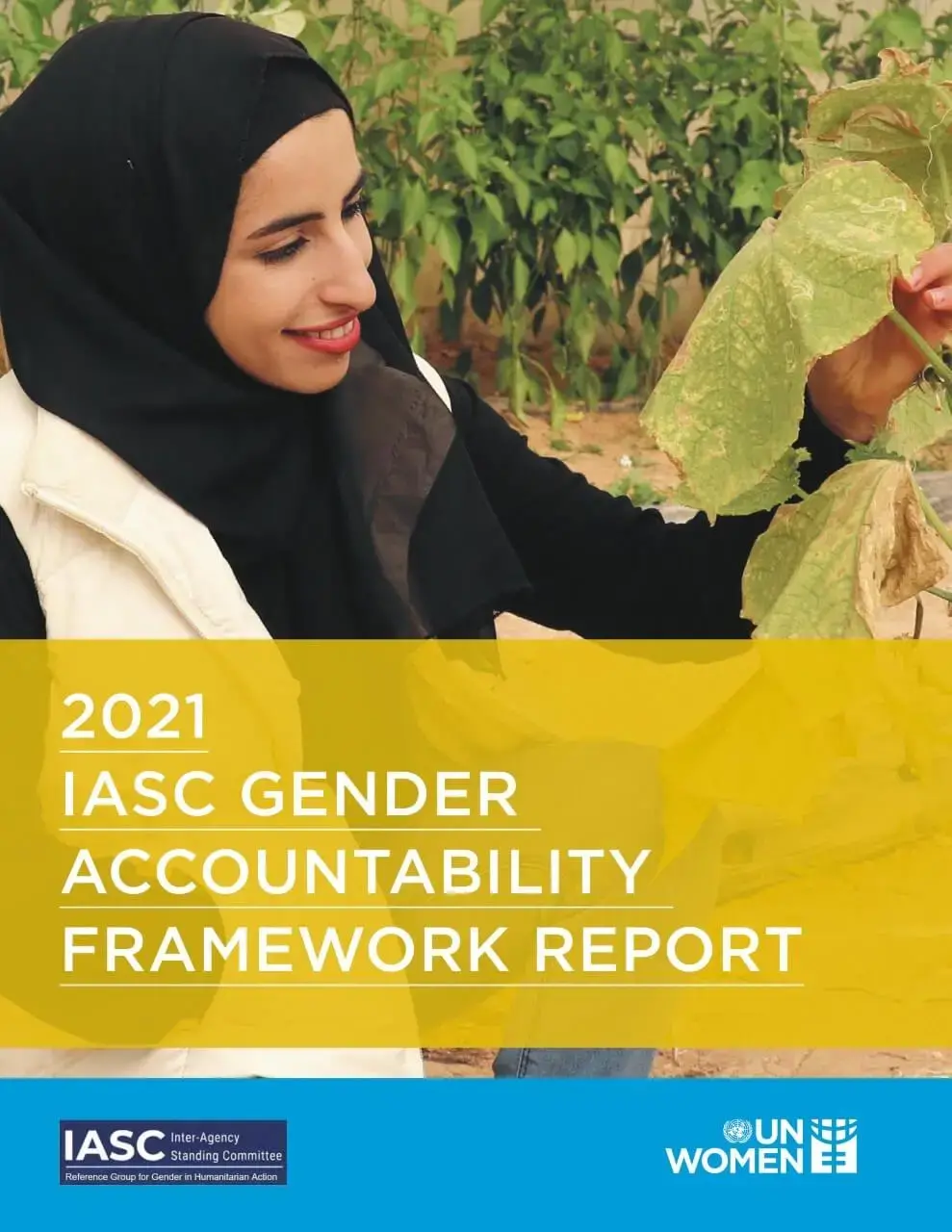
2021 IASC Gender Accountability Framework report
This report marks the fourth monitoring cycle of the Inter-Agency Standing Committee’s (IASC) 2017 “Policy on gender equality and the empowerment of women and girls in humanitarian action”. It provides a snapshot of the IASC’s output in the calendar year 2021 and allows for cross-comparison with the baseline established with the 2018 Gender Accountability Framework (GAF) report and the subsequent 2019 and 2020 reports. The annual GAF reports are the only system-wide mechanism in the humanitarian space monitoring the implementation of gender commitments at the global and field levels.
In 2021, the application of the IASC’s gender policy at the global level showed mixed results but overall progress. Despite improvements at the global level, there was uneven support from the global structure of the IASC to its field representation in implementing the gender policy. Implementation of the policy at the field level continues to improve in 2021 vis-à-vis Humanitarian Needs Overviews and Humanitarian Response Plans. Despite gradual improvements in recent years of Humanitarian Country Teams (HCTs) consulting women’s rights organizations, this year the percentage of HCTs doing so dropped marginally from 68 per cent to 65 per cent.
This report is a product of the IASC’s Reference Group for Gender in Humanitarian Action (GRG). It was developed by UN Women in its role as the GRG’s Gender Desk with support from a dedicated working group composed of CARE International, Oxfam, UNICEF, OCHA, the Gender Capacity Standby Project, and the IASC Secretariat.


